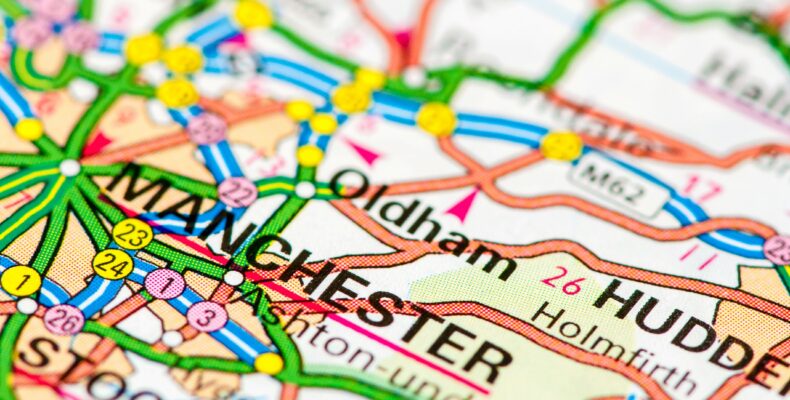
When is a location a trade mark?
Manchester finds itself in the middle of an intellectual property dispute
In the world of higher education, branding and trade mark protection are critical for maintaining institutional identity and market position. The University of Bolton (UoB) has applied to the Office for Students (OfS), the industry regulator, to be known as the University of Greater Manchester which, going forward, will use the acronym GMU. The justification for this is that it would be a more accurate description of the geographic spread of the campus. UoB has filed for a plethora of trade marks around UNIVERSITY OF GREATER MANCHESTER and GMU or UoGM, which have in turn been opposed by The Manchester Metropolitan University and the University of Manchester.
Background
The University of Manchester as a name was adopted in 2004. As an institute it is an amalgamation of the Victoria University of Manchester and the University of Manchester of Science and Technology (UMIST) both of which were established in the 19th century. It is fair to say that the history of the university is entwined with the industrial heritage and growth of Manchester as a city. In 2023, the University of Manchester boasted 42,000 full-time students and brought an income of £1.3bn to the city. Manchester Metropolitan had 31,600 full time students with an income of £422m. In contrast, UoB had 8,730 full time students and an income of £136m.
It is therefore understandable why it could be beneficial for UoB to leverage the established link between higher educational institutions and the Manchester name.
The University of Manchester and Manchester Metropolitan argue that they have established rights in the name ‘Manchester’ for a broad range of goods and services, including educational services. The core of their argument is that UoB’s use of ‘Manchester’ could cause confusion among prospective students and diminish the distinctiveness of their brands.
But is this a fair argument when UoB is referencing Manchester as a geographic indication of the location of its sprawling campus?
Analysis
Similar arguments around the registration of geographic names has arisen before, most notably around football clubs. Sticking with Manchester, it would be wrong for Manchester City FC to register and thus secure exclusive rights to MANCHESTER and preclude Manchester United from using it, and vice versa. Instead the football clubs have gone down the route of protecting the MANCHESTER CITY/ MANCHESTER UNITED brands and the associated FC badges.
A solution to the current dispute could therefore render a similar situation although, unlike the football example, neither party has sought to register MANCHESTER FOOTBALL whereas all higher education parties are looking to secure rights in the combination of MANCHESTER with UNIVERSITY.
Whether the oppositions are successful remains to be seen, the level of distinctiveness and the reputation associated with the ‘Manchester’ mark are central to the dispute. Manchester University is likely to emphasise its longstanding and well-established reputation, whilst UoB is likely to argue that its use of ‘Manchester’ is descriptive and does not dilute Manchester University’s brand.
The question of confusion is also relevant; would a student really confuse one higher education establishment for another? Many cities have different universities: the University of Birmingham, Birmingham City University, University College Birmingham; the University of Sheffield and Sheffield Hallam; The University of Leeds and Leeds Beckett University. The list is endless.
Summary
The case underscores challenges around trade marks which contain geographic terms.
It will potentially demonstrate the limitations around the enforcement of those registrations as there is undeniably a need to ensure that the location names remain free for use by others. The question of course is: whether the use is fair; or whether it will cause confusion – or take unfair advantage – of an established reputation.
For higher education institutions, particularly those looking to expand their national and potentially international reach, promoting proximity to the UKs larger cities is an understandable strategy. It will immediately help prospective students ‘place’ the university.
Whether the geographic reference actually needs to form part of the university name is a point for discussion and approval by OfS but should also be discussed with your trade mark attorney who will offer insight into the nuances of trade mark law and geographic considerations.
Before adopting or changing branding strategies, institutions should conduct comprehensive trade mark searches to assess potential conflicts. It cannot be assumed that it is all right to use a geographic descriptor as this case has shown.
If you would like to discuss this article further, please contact the author, or your usual Barker Brettell trade mark attorney.



